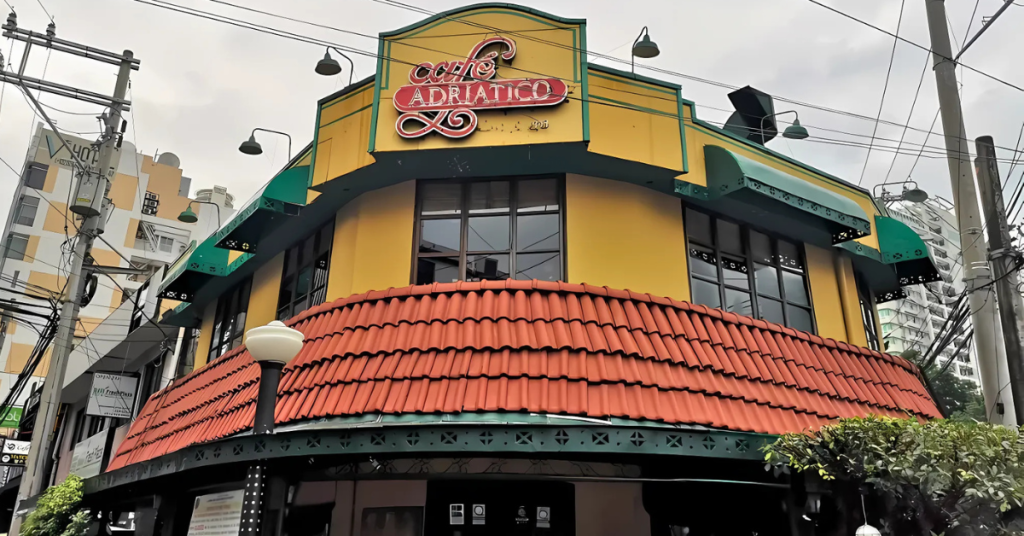Long before Café Adriatico became one of the most beloved cultural landmarks in Manila’s Malate district, it was something else entirely—a passion project, a personal museum, and an antique lover’s haven.
“It was called Collection K.O. Koleksyon at iba pa where all his antiques were housed and some of the paintings,” recalls Lorna Cruz-Ambas, daughter of the late Lorenzo “Larry” Cruz, founder of the LJC Restaurant Group. “We had so many antiques kasi because he loves them.”
Lorenzo Cruz, a journalist by profession and former Assistant Press Secretary during the Marcos administration, had never intended to go into the restaurant business. His world was media, politics, and creative writing. But his deep passion for collecting antiques—something he inherited from his own father, painter Emilio Cruz—unexpectedly laid the foundation for what would become a restaurant empire.
“He used to collect like my grandfather. They would always scour for antiques, maghahanap sila, clean them up, and put them in,” Lorna explains. Eventually, the family’s collection outgrew their home. That’s when Lorenzo decided to rent a commercial space in Malate. The location would eventually become the home of Café Adriatico, but at the time, it was simply a place to house his overflowing collection of vintage furniture, decor, and Filipino art.
The shop, Collection K.O., featured everything from restored wood carvings to oil paintings and heirloom furniture. But it wasn’t until a chance encounter that the space took on a whole new life.
“One day, there was a guy, a foreigner, who approached him when he was there in the store and asked him why don’t we put up something here like a coffee shop?” says Lorna. At first, Lorenzo was hesitant. “He said, ‘I don’t know the first thing about restaurants.’” But the foreigner—named David—offered to help set it up and be his partner.
That spark of an idea turned the antique shop into the first Café Adriatico, which opened in 1979. With its old-world charm, vintage interiors, and traditional Filipino-Spanish dishes, the restaurant quickly became a hotspot for artists, writers, journalists, and intellectuals—mirroring the ambiance Lorenzo had already unintentionally created through his antique collection.
Today, Café Adriatico is an icon, credited for igniting the Malate dining renaissance and setting the tone for the LJC Group’s future restaurants. But its origins remain rooted in personal history, family passion, and a room full of beautiful old things.
![]()



